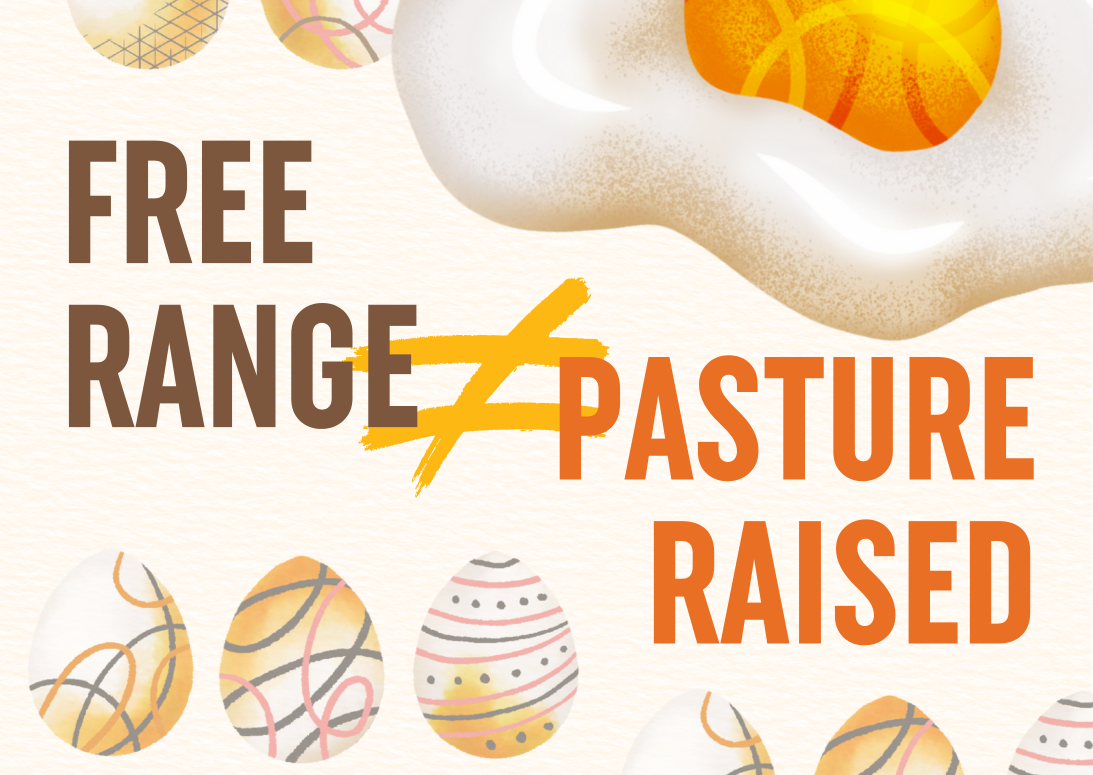
Pastured vs Free Range Eggs- What's the Difference?
|
Time to read 2 min
|
Time to read 2 min
When buying eggs, many shoppers see labels like “free range” and “hens per hectare” — measurements that matter in stationary systems, where too many birds in one place can harm the land and the chickens. In these settings, overgrazed ground and accumulated manure become environmental and welfare concerns.
At Unison Farm, those concerns are solved by a mobile, pasture-raised system. Laying hens live in moveable chicken caravans and are rotated regularly to fresh pasture. Instead of manure build-up, their waste becomes natural fertiliser, helping grass regrow and feeding soil microbes. The focus isn’t on how many hens per hectare — it’s about how long the land is rested and rejuvenated. The result: healthy pastures, happy hens, and eggs that truly taste better.
“Free-range” and “pasture-raised” are terms that describe the environment where the chickens that lay eggs are raised
Chickens that lay free-range eggs have some outdoor access- they are still housed in permanent shelters and have limited access to open grazing
Chickens that lay pasture-raised eggs have the most outdoor space and eat a more varied diet- they must have access to fresh pasture and open spaces
Research from the CSIRO has shown the minimum standard of 1500 hens per hectare on outdoor range (giving 6.6 square metres per hen) classifies as a 'free range' lifestyle. Yet governing bodies define free range as 10,000 hens per hectare and there is no quantifiable mandate for hens to spend time outdoors under the legal definition of 'free range' egg farming.
Free range is the commercial standard for managing hens - under the free range legal classification, there can be up to 10,000 hens per hectare, although some producers may run as low as 1,500 hens per hectare.
Under the legal definition, free range hens are permanently housed in fixed sheds and must have access to outdoors. There are doors from the shed that are opened during daylight hours to an outdoor area. The outdoor area they are occupying is not usually managed on a rotational basis. As the hens are continually scratching around in the same area, it becomes a bare patch of dirt.
Pasture raised eggs come from hens that must have access to pasture year round. Pasture raised egg farming allows hens to experience the best quality of life for a chicken. This means that hens can express their natural behaviours, which include preening, dust bathing, foraging for insects, eating green grass, and sunbathing.
Hens are housed in mobile chicken tractors that are moved weekly onto fresh pasture. A tractor houses 400 chickens within a 50m x 50m netting fence, or 2,500 square metres, which is the equivalent of 1,600 hens per hectare.
Extensive protections are put in place to prevent threats such as foxes and birds of prey. Regenerative farming employs chemical free and minimally evasive methods such as guard dogs and mobile shelters to provide a safe space for these foraging, happy hens!
Pastured Eggs are the New Free Range [SBS, 2016]
Are your eggs really free-range? [Choice, 2021]
Model Code of Practice for the Welfare of Animals: Domestic Poultry [CSIRO, 2002]

